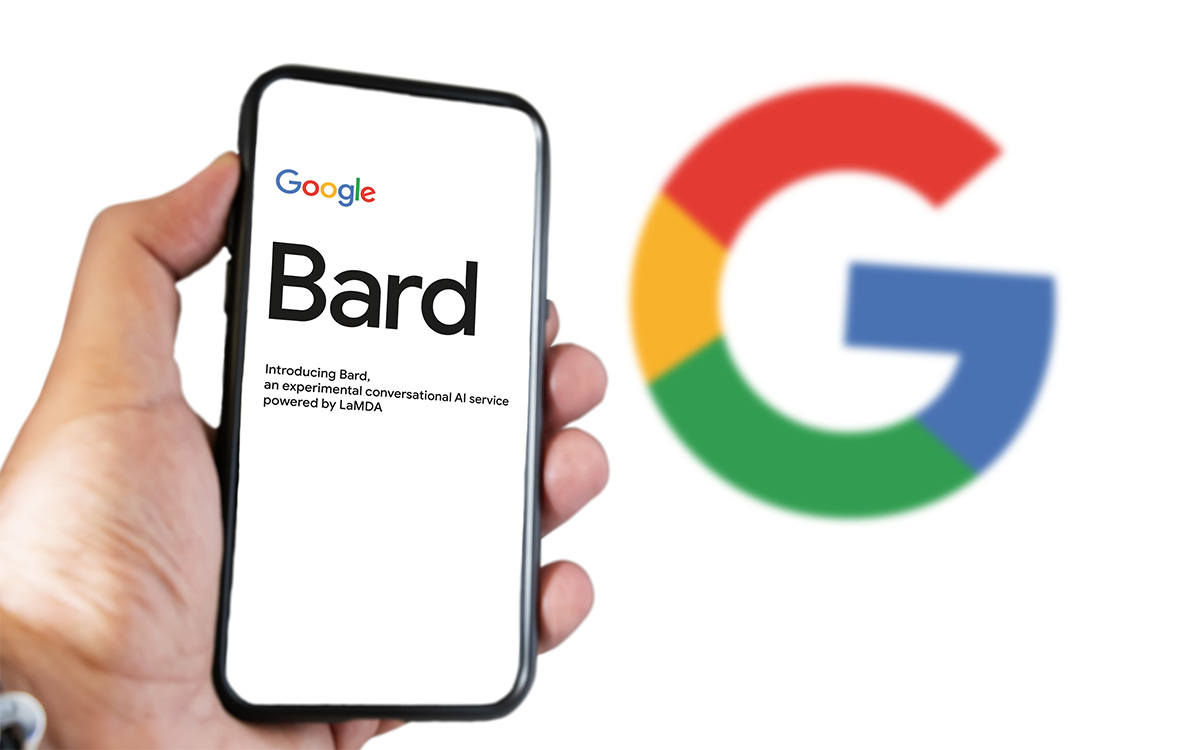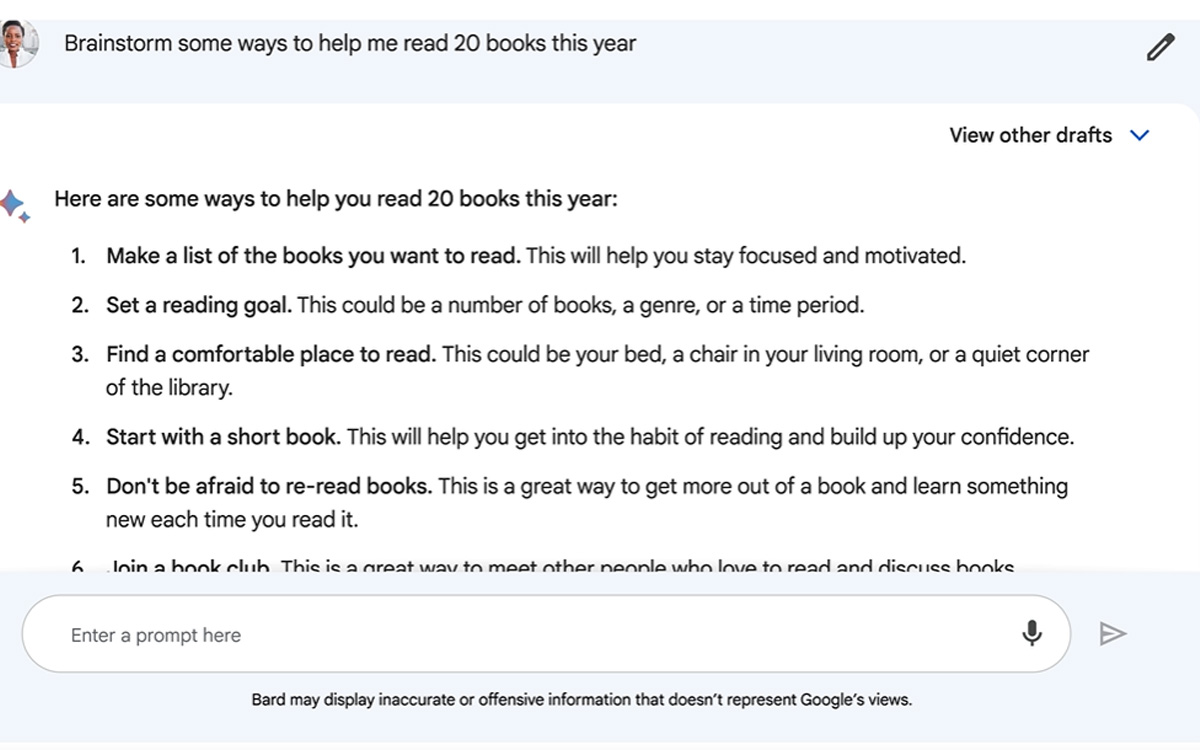
Google is gradually opening up access to Bard, its conversational AI designed and developed to compete with Chat GPT. After a hand-picked testing period, US and UK users can now sign up to try Bard.

The AI war continues. While Microsoft has just presented this Tuesday, March 21, 2023 Bing Image Creator, a tool that will revolutionize image creation on the webit’s Google’s turn to speak.
As you may know, the Mountain View firm has been working for several months on a direct response to Chat GPT, OpenAI’s conversational AI. This rival, which responds to the name of Bard, was presented by Google in February 2023. According to the American company, Bard was thought of as a companion for its search engine.
While Bard’s initial trials were conducted with trusted testers, Google has just confirmed on his blog the launch of a Preview version of its AI, accessible to as many people as possible. Indeed, US and UK users can now sign up to try Bard.
Google launches a first Preview version of Bard
“You can use Bard to boost your productivity, accelerate your ideas, and fuel your curiosity. You can ask Bard for tips on how to reach your goal of reading more books this year, explain quantum physics in layman’s terms, or spark your creativity by outlining a blog post.“, presents Google
Like its competitor, Bard is based on a large language model (LLM), more specifically on a light and optimized version of the LaMDA (Google Model’s Language for Dialogue Applications). Bard leverages massive amounts of data to predict the best possible response to the user’s query.

Also to read : Microsoft Bing – the new version of the search engine with ChatGPT unveiled in pictures
Results still perfectible according to Google
As Google explains, when Bard receives a prompt, “it generates a response by selecting, one word at a time, the words likely to come next”. In essence, Bard is a prediction-centric AI. In other words, its objective is more to find a theoretical answer likely rather than providing exact information.
Google also underlines this point in its blog post. “As they (editor’s note: the LLMs) learn from a wide range of information that reflects real-world biases and stereotypes, these sometimes show up in their results. They may also provide inaccurate, misleading or false information while presenting it with confidence”.
But of course, Bard will improve its performance and the relevance of its answers via machine learning. Hence the need for Google to open access to its AI to a larger panel of users. The company plans to offer Bard in more countries and more languages in the coming weeks and months.



